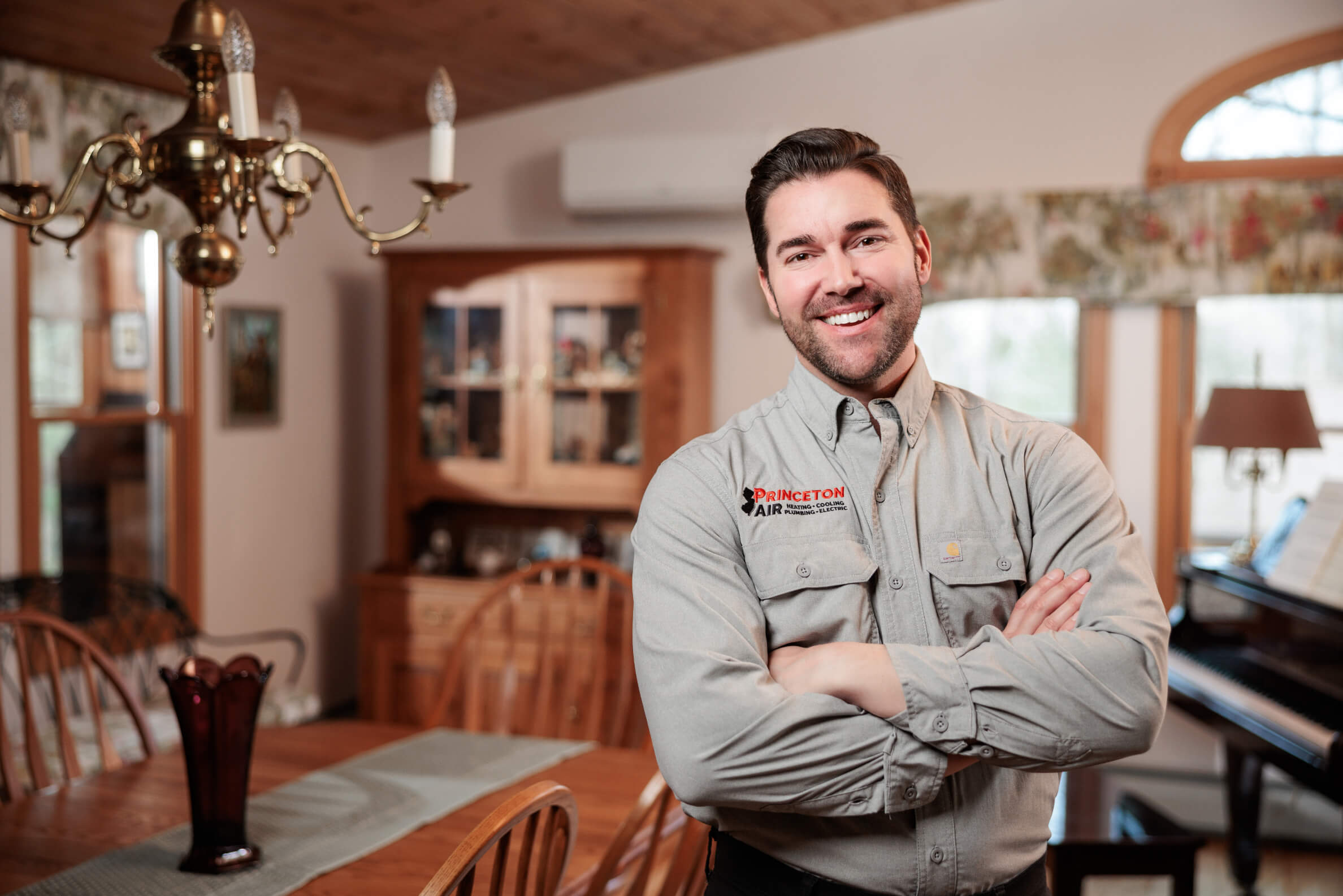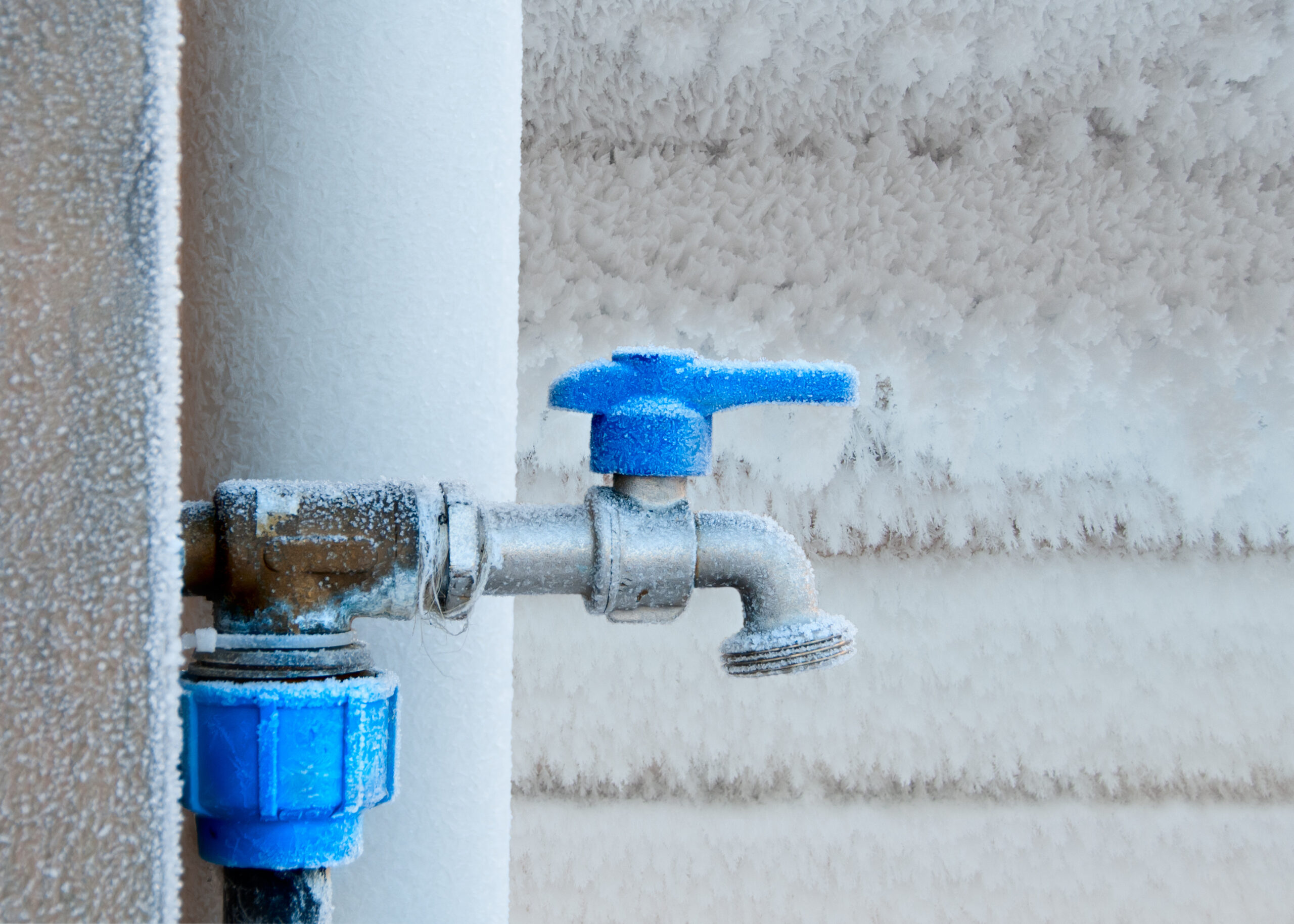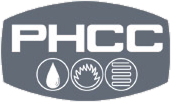Beth Fitzgerald
Scott Needham heard the recession knock on the door of his family’s heating and air conditioning company during the strangely quiet summer of 2008. “July and August, we’re usually hitting on all eight cylinders — selling, servicing equipment and running around like chickens,” said Needham, president of 39-year-old Princeton Air. “Our CEO — my father, Joe Needham — said, ‘You know, something doesn’t feel right.’”
Scott Needham, president of Princeton Air, says by restructuring when the recession first hit, quick action helped prevent a disaster that befell an industry that was hit hard when the real estate boom went bust. [Christina Mazza]
So Princeton Air canceled plans to hire two new workers — instead laying off five of its 46 employees — then went hunting for new sources of revenue. Within weeks, the company decided to launch a home energy-audit business. It required a substantial up-front investment, but it built upon the company’s knowledge of heating and air conditioning. The timing was right, Needham said, because the company’s new home-performance unit dovetailed with generous financial incentives from the state designed to get homeowners to weatherize their homes and install energy-efficient furnaces and air conditioning units. For projects that satisfy the state’s energy-cutting targets, New Jersey gives rebates for half the cost, up to $10,000, then provides an interest-free 10-year loan for the balance.
Oftentimes, the homeowner’s monthly savings in utility bills exceed the loan payment, “meaning there is positive cash flow from day one after the project is done,” Needham said. Amid the worst recession since the 1930s, Princeton Air took the risk of investing in new equipment and hiring workers to launch a new business venture, and the gamble paid off: revenues rose 12 percent in 2009, and today Princeton Air has 52 employees.
Needham said it made a difference that the company moved fast once the recession hit — despite a deep real estate downturn that has been very tough on the heating and air conditioning industry — instead of waiting and hoping the economy would improve.
“There was a huge cost-cutting pressure in our industry, and a lot of companies just stopped doing work,” he said. “It took a leap of faith … but it has exceeded our expectations.” Since launching the energy-audit division in January 2009, the company has more than 50 homeenergy renovations in the pipeline, either completed or under way.
Needham recruits energy auditors trained by Isles, a Trenton nonprofit, through a program funded by the state, which pays a portion of trainees’ wages during the energy auditors’ six-month apprenticeship at Princeton Air. To date, Princeton Air has hired six graduates from Isles, “and they are very well trained and very good with our customers,” he said. His home-performance crews have a four-month backlog of projects “because there are a lot of people very interested in doing this,” Needham said.
“Some of our clients are just interested in saving money on their utility bills, but many more want to do their part to save the environment. At the end of the day, the work we are doing is reducing hundreds of thousands of tons of carbon.”










